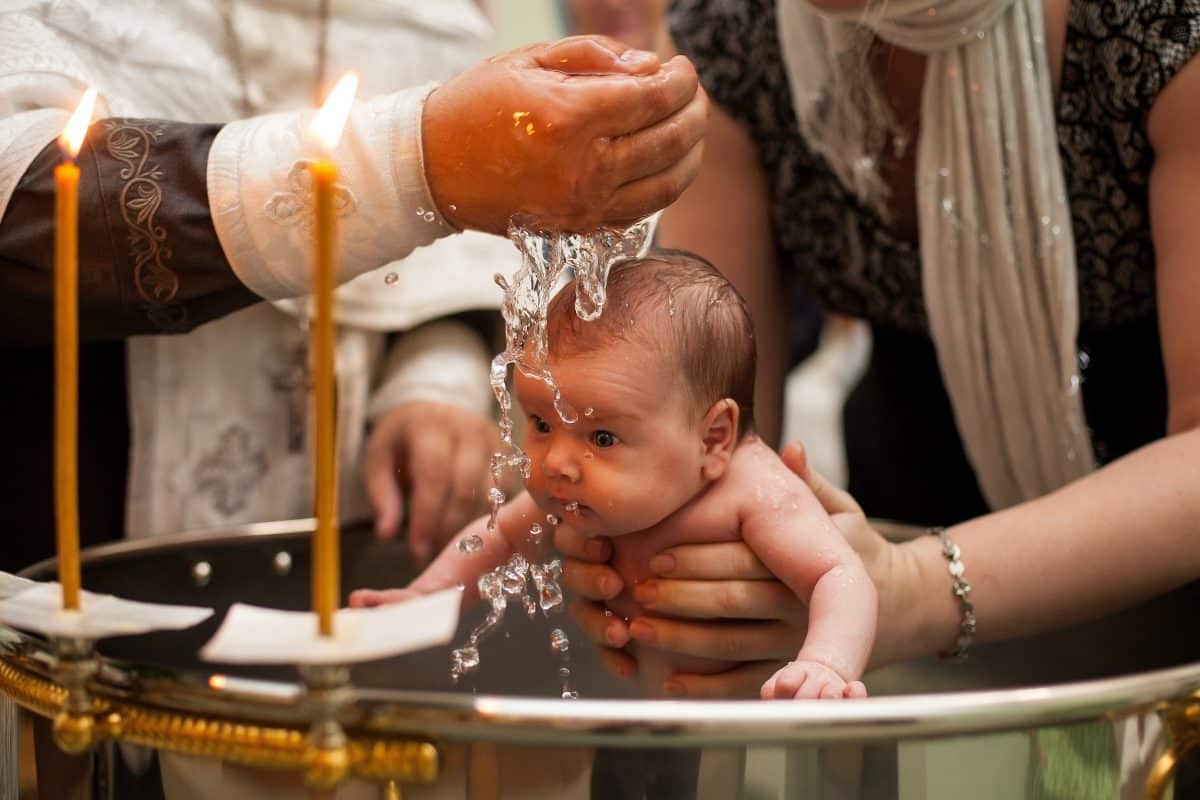What a long, strange trip it’s been
I typically try to avoid discussions on issues that divide Christians (such as who can receive communion and the meaning and mode of baptism), because individual denominations have taken stands one way or another and the debate can be heated, tiring, and totally unpersuasive. So, rather than go into the subject of infant baptism root and branch, let me explain in general terms how I evolved from disdaining infant baptism to embracing, or at least accepting it.
Infant baptism: Are we putting the cart before the horse?
I was baptized as an infant, went to Sunday School growing up, etc. But that baptism did not keep me on the right track, and absent any real faith in my heart, likely would not have saved me had I met an untimely death as a youth. This concept is a universal one in reformed theology—that faith alone saves us (Solo fide.) When I was in my late teens, I had a born-again experience and was baptized by immersion. Like a person who falls in love, I wanted to discover all I could about the Object of my affection. I talked with other Christians of different denominations far into many nights. I read Scripture and the early church fathers, particularly Tertullian (155-220) and he was against infant baptism, because he believed that faith must precede baptism (like we learn from Phillip and the Ethiopian eunuch in Acts.) However, as much as I respect Tertullian’s writings, I also respect Augustine who shortly followed a century later (354-430) and he allowed infant baptism. Then, as I grew as a Christian, I read Luther. At that point, if you asked me how I knew I was saved, I would reply that I had a tearful experience one night (as Wesley did.) Luther taught me that I should not base or anchor my faith on tearful, subjective experiences, but rather on the Word of God. I also recalled talking to a preacher about joining his evangelical church back around 1972, and he mentioned that (by-the-way), I would have to be baptized again. I told him that I was baptized twice already: as a baby, and then a “do-over” the “right way” years later. I was in the military and moved around a good deal. What if I went to five assignments in five different states? Would I have to be baptized five more times whenever I joined a church? He replied that this was just his church’s policy. Today, if I had an opportunity to live my life over, I would hope I would have only the one baptism by immersion (and Luther, himself, agrees that immersion is preferable, though he admits that it is not always possible and he never practiced it himself, and nor did he teach it.) But the fact that in my life, faith followed baptism instead of the other way around does not negate the baptism I had as an infant in my opinion. So, I would have declined baptism by immersion, having already been baptized as a baby.
βάπτισμα clearly means to immerse
I won’t go into a word study of the Greek word baptism (βάπτισμα), the pros and cons of when a person should be baptized, how and what baptism symbolically represents, the doctrine of original sin and so on. However, I do feel comfortable with baptism administered by “dunking” or “pouring” to use the vernacular, and I no longer object to infant baptism. I think there is some practical value for a child who has been baptized as an infant in ways I would have difficulty explaining. I think God honors that act of faith by the parents much as Jesus honored the faith of the Centurian and healed the Centurian’s servant. In some way, there may be some spiritual benefits for a wayward child who is baptized (like I was.)
In a perfect world, the baby being baptized in the photo would grow up in a Christian home with Christian instruction and would not stray. At a certain age, the child would be socialized in the Faith and appropriate the value system as his or her own. The child’s parents would not divorce, and they would lead by example, teaching the child how to pray and to trust God, and the child would love the Lord, live to a ripe old age, and so forth. This formula for success does happen. We don’t live in a perfect world, however, and just as God has plans for this child (good things), Satan likewise has plans for the baby (bad things.) We’re not reduced to pawns like Achilles or Hector might have been as Poseidon and Hera rooted for their side to win the Trojan War.
Here’s an interesting discussion on baptism for your reading pleasure. The Didache (also called the Teaching of the Twelve Apostles to the Nations) is a second century writing, sort of a collection of early church teachings, which does not rise to the level of being part of our Bibles, but still worth reading. The Didache mentions baptism in “living water” which probably means “running water” though the Bible does not require that.



